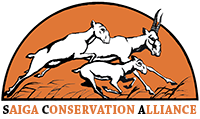On December 4, 2023, a working meeting was held in the conference room of the Jipek Joli Hotel (Nukus, Karakalpakistan) to discuss the draft Management Plan for the Aralkum National Park (NP) as part of the Darwin Initiative/Defra project “Resurrection Island: Industry, Nature Conservation and development around the Aral Sea” with the participation of ecologists, employees of the Academy of Sciences and National Natural Reserves, representatives of industry, tourism, as well as the khakimiyat of the Muynak region. This event was organized by the Institute of Zoology of the Academy of Sciences of the Republic of Uzbekistan with the support of the Saiga Conservation Alliance, the Ministry of Ecology, Environmental Protection and Climate Change of the Republic of Uzbekistan, the Research Institute for Tourism Development, the Uz-Kor Gas Chemical JV and the training center “The Pearl Group”. The project is being implemented jointly with researchers from the University of Oxford (UK).
The project promotes the creation of a protected natural area on the drained bed of the Aral Sea in order to preserve the unique biodiversity of this region and develop sustainable forms of tourism (ecological tourism), and also ensures mitigation of the impact on biodiversity by applying the principle of zero losses to nature. The efforts of the project participants and partners were not in vain. In 2022, the Aralkum National Park (NP) was created on an area of 1 million hectares. To achieve this task, 1) a study of the fauna of Aralkum was carried out, 2) zones critical for biodiversity were identified, 3) together with employees of the Institute of Botany, a scientific justification for the creation of the Aralkum National Park was prepared, 4) assistance was provided in determining the boundaries and functional zones of the park.
During the working meeting, participants learned the general goals and objectives of national parks, the specifics of functional zoning, and the concept of developing management plans for protected natural areas. A draft Management Plan for the newly created Aralkum NP was presented. There was also an interesting discussion of the project for a new zoning of this protected natural area. A separate issue was the discussion of its tourism potential.
The prepared materials aroused great interest and active discussion among the seminar participants. Experts explained the basic principles of zoning and determining the boundaries of NPs, the advantages of integration into regional systems of specially protected natural areas.
Mr. Khalilulla Sherimbetov, Head of the Department of Protected Natural Areas of the Ministry of Ecology of the Republic of Uzbekistan, noted in his speech that the development of a system of measures to resolve existing or suspected conflicts of interest in certain areas of the territory of National Parks is very important. Such measures may include adjusting the boundaries of individual functional zones, changing the regimes of their protection and use, and identifying subzones and priority management areas.
It should be noted that abroad national parks are one of the most popular categories of protected natural areas. However, behind the same name in different countries of the world there are often very different objects, both in terms of preservation and tasks. Functional zoning is the most important tool for managing the territory and resources of a national park, making it possible to establish for a particular area the optimal balance between measures of use and special protection.
During the presentation of the project for the new zoning of the Aralkum NP with the corresponding justification, Elena Bykova, an employee of the Institute of Zoology of the Academy of Sciences of the Republic of Uzbekistan, as well as the head of the Saiga Conservation Alliance Uzbekistan Programme, noted that zoning determines which management methods best ensure the fulfillment of the objectives of the national park in certain parts of its territory. Typically, the zoning system in any national park solves a whole range of problems, the priority among which is reducing the anthropogenic impact on the natural, historical and cultural complexes of the national park through a differentiated planning structure and regulation of recreational flows.
The seminar also discussed the importance and significance of creating a developing system of tourism and recreation, which presupposes freedom of choice of recreational activities.
The participants came to the conclusion that in the zoning concept, it is important to include the idea of flexibility and adaptability of management, implemented through management measures. Moreover, when zoning, it is necessary to strive to delineate powers and responsibilities in different areas of the territory within the boundaries of the national park.
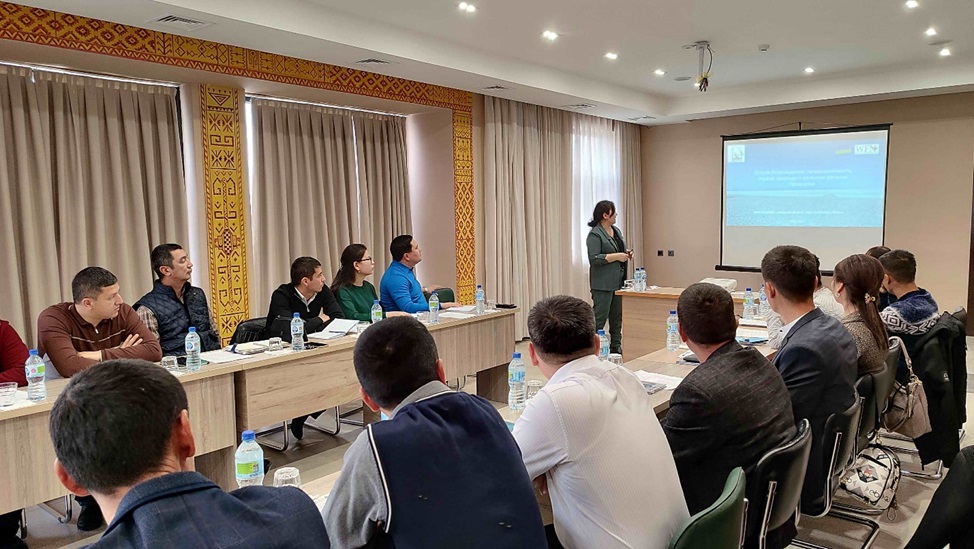
Zebo Isakova presents the main goals and objectives of the Resurrection Island project
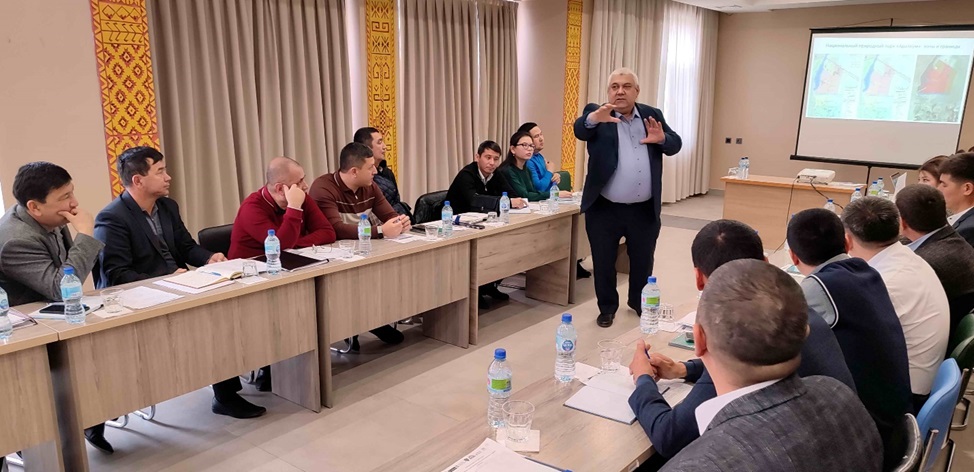
Khalilulla Sherimbetov provides explanations on the main tasks and functions of national natural parks
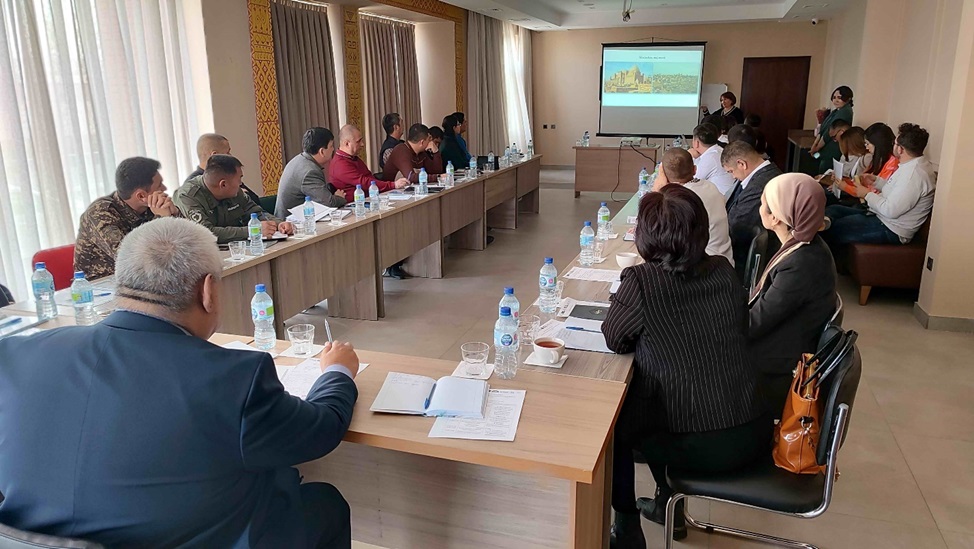
Presentation of the tourism potential of the project area by tourism expert Barno Mammetova
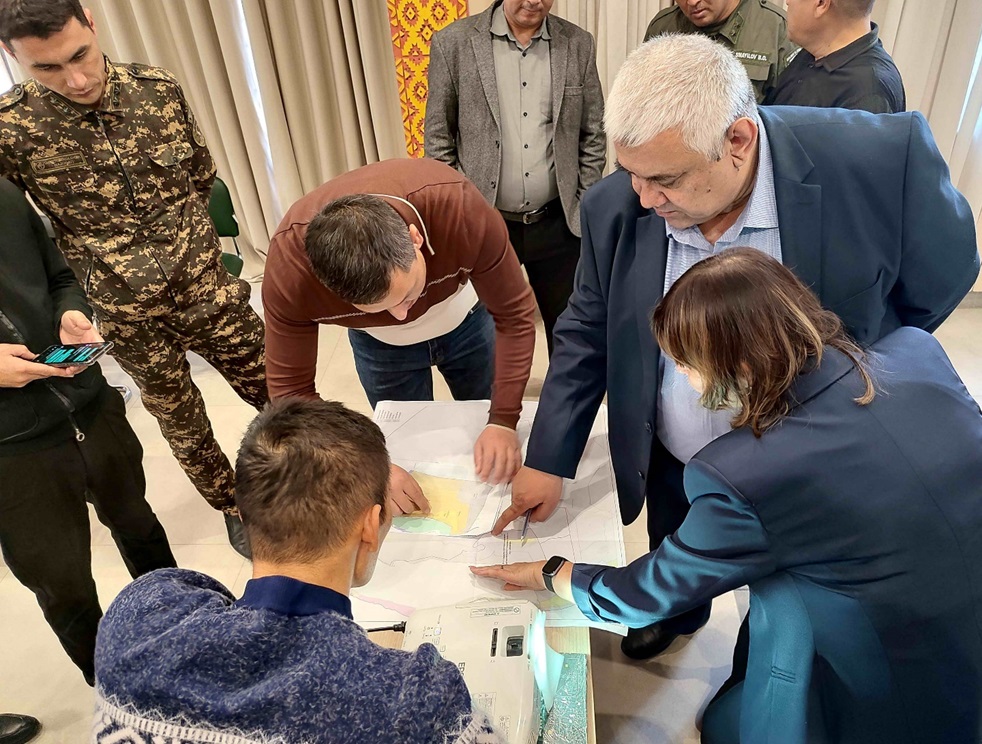
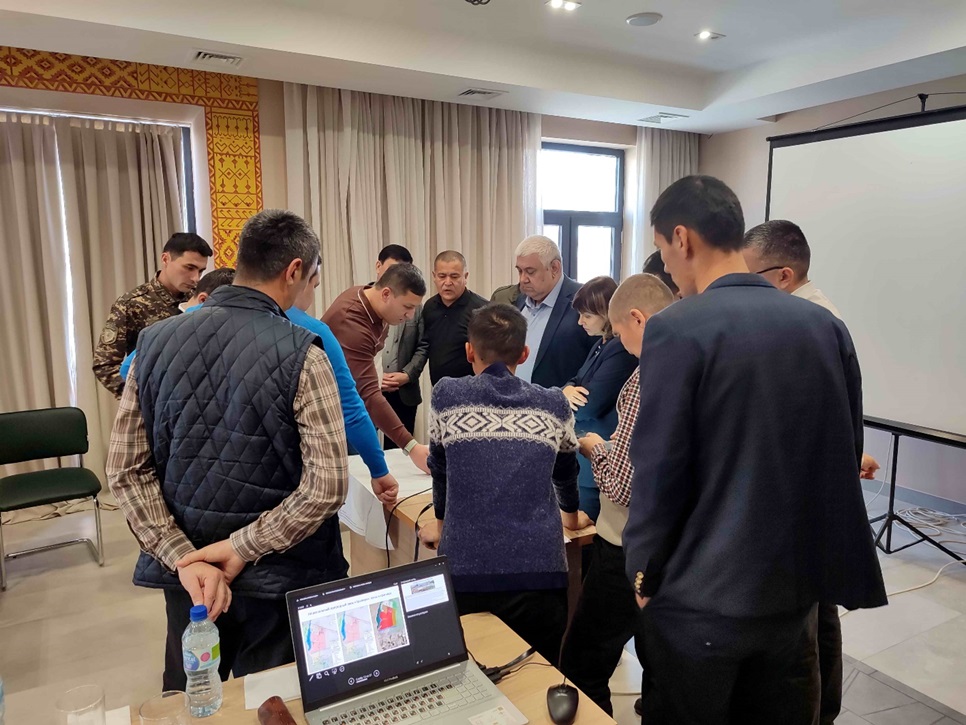
Interested discussion of the functional zones of the Aralkum NPP
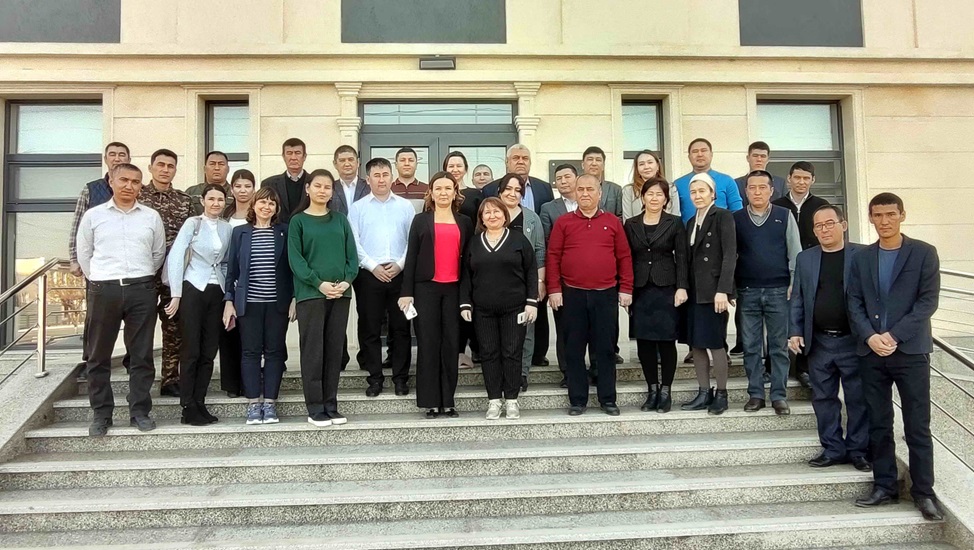
Participants of the working meeting in Nukus
Photo by A. Esipov
